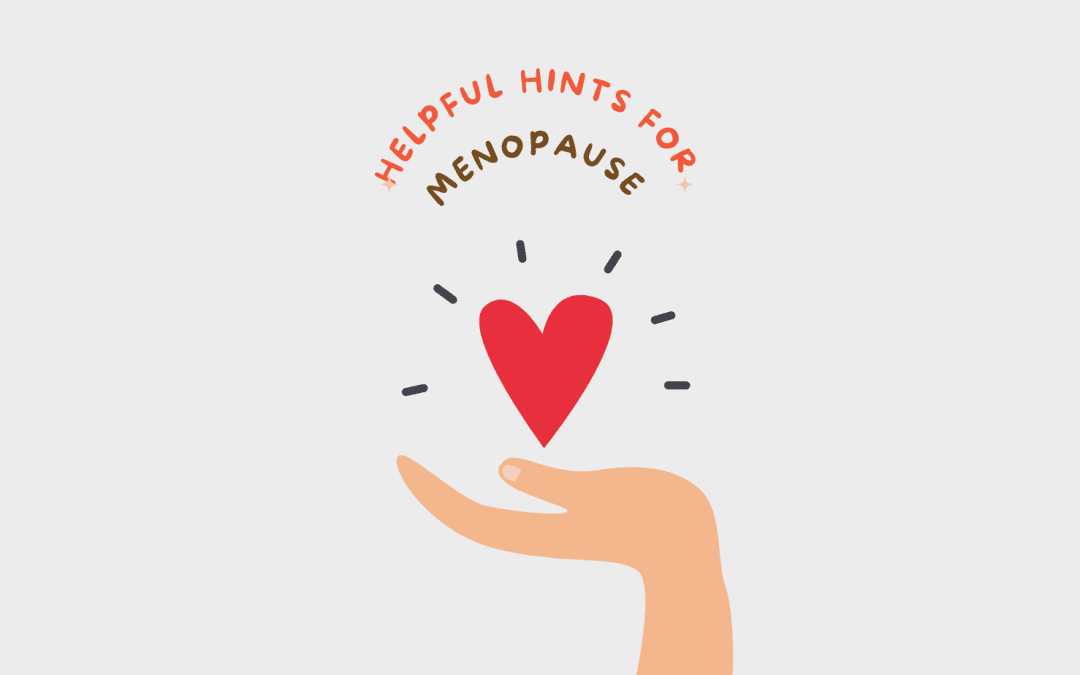What can you do to ease the transition into menopause?
Changing hormones leading up to menopause will cause different symptoms for different people. There are often problems with sleep, extra stress and anxiety, and issues with temperature regulation. Thankfully, there are some simple strategies that can help you have a happy, healthier menopause.
Self help strategies
We know that exercise helps with sleep and stress management, but when you’ve not had enough sleep, it can be difficult getting motivated to exercise. So it can become a vicious cycle.
Some simple strategies to get you moving:
- If you’re not currently exercising, try walking – it’s free and it gets you outdoors. Start slowly and build up. Aim for 150 minutes a week. Perhaps start walking by alternating with 30sec fast walking, 30 seconds slow.
- Walking helps reduce pain, improve mood and increase fitness and it only takes 2-3 weeks to start feeling the benefits.
- It’s also a good idea to try and include some strength and flexibility work.
- Set some goals – maybe exercise with a friend so you’re more accountable
And don’t let pelvic issues such as bladder leakage, bowel control problems or prolapse stop you from exercising. See a pelvic health physiotherapist for help. We are very happy to help with treatment of pelvic health problems around menopause. See our blog here for more information.
Laura Briden, a women’s health doctor, has published about hormones and their management. The following is from “How to cope NOW: Lara Briden’s Rescue Prescription” – some self-help strategies to help with perimenopausal symptoms.
- Limit alcohol intake
- If you are a smoker – try to give it up – see your GP if you need help with this
- Regular physical exercise – move your body in a way you enjoy
- Reach out to your friends/family and talk about it if you feel comfortable to
- Eat a healthy diet – particularly whole foods, homemade vs processed foods
- Consider taking magnesium supplements – talk to your GP or pharmacist
Medications
Menopausal Hormone Therapy (MHT) – previously called HRT
As long as there is no history of cancer, people with bothersome symptoms may be able to access hormonal medication to help. Talk to your GP.
You may be given:
- estrogen patches for more widespread symptoms (eg Estradot)
OR
- estrogen cream (eg Ovestin) for localised genital symptoms such as vaginal dryness, or for urinary urgency
For most people under 60 years of age, the benefits of hormonal treatment far outweigh the risks.
Other medication
For those who can’t have hormonal treatment, there are other options. Talk to your GP.
You could also ask for a referral to a Menopause Specialist eg The Wellington Menopause Clinic – click here or more details.
What can partners and family do?
- Try to learn more about perimenopause / menopause, to help understand what your loved ones may be going through
- Be patient, ask questions, show empathy
- Offer physical intimacy with “no strings attached” eg hugs, massage – penetrative sex may be painful. If penetration is an option, using a good vaginal lubricant can help a lot
- Support your partner to find the right health professionals who can help
Postmenopausal years
With time, it is likely that symptoms will ease up. Achieving menopause, where there has been no menstrual bleeding for more than a year, can come as a relief for many – allowing one to settle into a new phase of life.
References:
Jean Hailes Organisation: click here
Podcast : Laura Briden, Spotify: Menopause 101, Laura Briden on: Grey Areas with Petra Bagust
Book: Briden, L. (2021) Hormone repair manual: Every woman’s guide to healthy hormones after 40.

